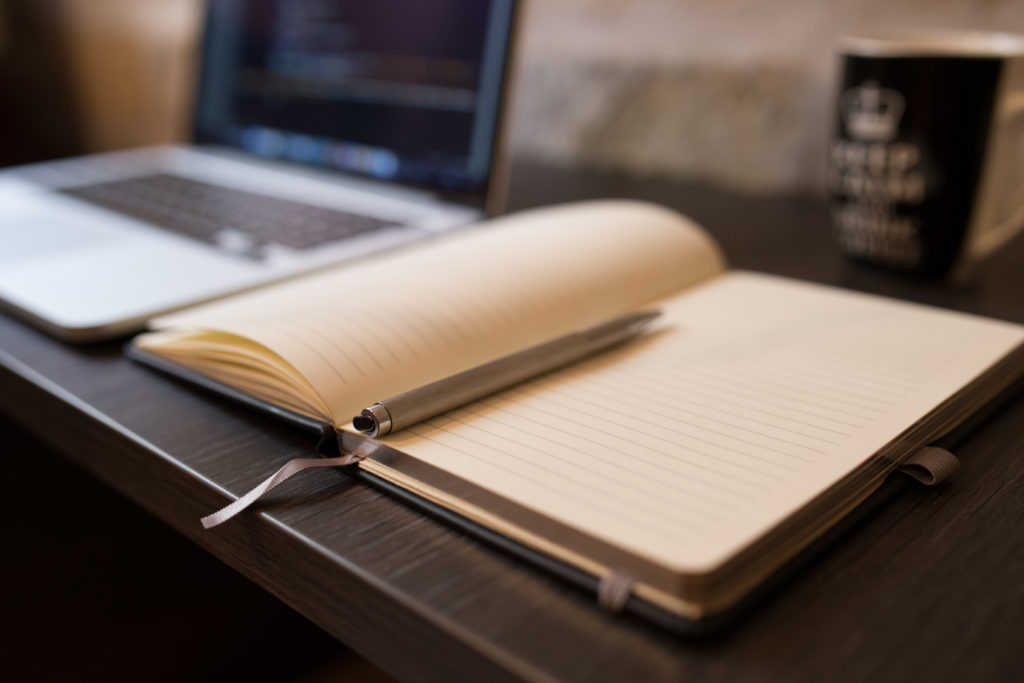JOIN OUR WHATSAPP GROUP. CLICK HERE
Interviewing is the phase of the job search process where you go from being an applicant on paper to a real, 3-dimensional person. In one way or another, you are being evaluated on your verbal communication skills through this face-to-face (or phone) interaction. Employers want to see if you match up to the qualifications described in your résumé and they want to see if you have good interpersonal communication skills to get a sense of how you would function as part of their team.
Interviews are often intimidating for job seekers who feel the pressure of being evaluated and feel uncomfortable with the interview format. While the nervousness may never go away, effectively preparing for the interview can make you feel more confident, and, with practice, you will be better able to stay in the moment and treat the interview like a conversation.
This chapter will focus on general interview preparation, but know that different disciplines and industries have different interviewing techniques. For instance, the technical interview or “code day” has become standard for many computer science-related fields. You should always do research on standard practices in your industry, but also keep in mind that interviews can be surprising. In fact, some employers try to surprise interviewees to get a sense of how they think and react in unfamiliar situations. Part of your challenge is to stay open-minded and relaxed so you can project confidence, even in unexpected or unfamiliar situations.
Preparing for the Interview
Good preparation before an interview is based on understanding who your audience is—understanding the employer and the industry. This is not the type of information that you can memorize the night before. Take time as much time as you can to read and absorb information from a variety of sources to get a thorough sense of the company—not just the basic information you find on the “About” page of their website, but the tone and personality they broadcast in social media, their achievements, their community involvement, etc.

Every semester I facilitate workshops on interviewing strategies for engineering students. In the presentation the following question is asked: “What do you think employers say the number one interviewing problem for our students is?”
Do you know the answer? You probably do. In fact, I have yet to lead a workshop where the right answer was not guessed right away. The number one constructive statement from Engineering Career Services (ECS) employers is that students are not prepared by doing simple research about the company.
Did you know that you are supposed to do research before going into an interview or a career fair? You probably did! Most students seem to know the importance of research and claim to practice this prior to an interview, but still most employers say students don’t know enough about the company and industry.
Consider:
- students may not know how to research effectively and, more importantly,
- students may not know how to clearly communicate this research to the employer.
This may seem like old news, but because many employers and students are not seeing eye to eye on just how prepared students are, you owe it to yourself to consider the following advice. Think of it as double-checking your research methods before your next employer interaction!
The solution is pretty straightforward. Start by using multiple resources to look at the company and position from different angles.
Next, spending time on the company website is an absolute must. Useful information can be found on the homepage, the “About Us” page, the “Careers” page, as well as any pages about mission, vision, and values. Know facts such as: what goods/services the company provides, who the company’s customers are, and where your position of interest fits within the company structure. But also pay attention to how the company portrays itself. Recent news and social media platforms may also be a good tool for this information. Lastly, Glassdoor is a great resource to check out recent employee reviews of specific companies and even see actual interview questions that were asked of candidates.
But the key to doing all of this research is to remember that you are not just gathering information for the sake of gathering information. I have never heard of an interview where an employer asked a candidate to write down everything they know about their company. During every step of your research you should be asking yourself the following question: How do my interests, values, and qualifications fit within this company/position? Remember, answering this question is the primary purpose of an interview and asking yourself this question helps narrow your interests as well. If you aren’t considering this question than you are not researching effectively.
“The two words ‘information’ and ‘communication’ are often used interchangeably, but they signify quite different things. Information is giving out; communication is getting through.”
Sydney J. Harris
Now, let’s look at how you might convey that information during an interview.
Remember that the main goal of your company research should be to answer this question: “How do my goals/interests/values/qualifications fit into this company/position?” If you have actually thought through this question during research you will be prepared to communicate this information strategically in two ways: research-proving answers and research-proving questions.
For example, let’s say you are applying for an internship at Engineering Inc. and you notice on their website that one of their core values is “Sustainable Action.” In your interview you are asked why you wanted to be a chemical engineer. A research-proving answer could be, “I chose chemical engineering because I have always excelled at math and science, but I also wanted to do some good with my career. That’s actually one of the reasons I am interested in Engineering Inc. I noticed while reviewing your website that your company’s committed to sustainable engineering.”
Or perhaps you are asked where you see yourself in five years. How can you answer honestly, but also align your answer with what you have learned about the company? When speaking about your strengths or qualifications, provide answers that are reflective of you and the desired qualifications listed on the job description. Again, the goal of your interview is to convince the employer that you are the best fit for the company and position. You have to be looking through this lens during your research and every question that you answer!
Lastly, no interview is complete until you have your chance to ask questions of the employer as well. As you know, this is not a time to ask about salary or vacation time, but it is a good time to ask about factors that are important to you in a job search. That being said, your questions are another opportunity to demonstrate your knowledge through research-proving questions. Did the company just release a new product model or open a new facility? Asking questions about these things shows that you really do have a genuine interest in the company, and that you’ve done your homework.
So there it is! The big “secret” to interview success really boils down to knowing who you are, thinking about how you fit when you research companies and positions, and then seizing opportunities to communicate this fit during interview answers and questions. Pretty simple, right?
“Communication – the human connection – is the key to personal and career success.”
Paul J. Meyer
During the Interview
Once you have prepared mentally and gathered information for the interview, it’s time to prepare for the interaction during the interview.

Dress the Part
Let’s keep this simple—dress your best. In most business cultures, dressing professionally is a sign of respect, conveying that you care about the position, that you want to make a good impression.
Here are the basics:
- Wear your best professional clothing—this typically means a suit (for men, a tie) and dress shoes (no open toes, no white socks).
- Try on the complete outfit (including shoes) to make sure you’re comfortable. Does it fit? Stay in place? Can you sit down, shake hands, and move comfortably? You don’t want your clothing to distract you or the interviewer.
- Clean and press your clothes and shoes. Prepare your outfit the night before and hang it up (no wrinkles!).
Even if you know the work environment is casual, you should dress “up” for the interview—more professionally than you would if you worked there. The exception would be if you are explicitly told not to—for instance, if the recruiter specifies that you should dress “business casual.”
Don’t Come Empty Handed
Arriving at the interview with important documents and notes shows that you are prepared and thinking ahead. Organize all your materials in a nice folder or folio—presentation matters!
Print out several clean copies of your résumé and any other documents you might want to reference, like the job or internship description or your references. You should also bring a few samples of your work, if possible—documents you’ve prepared or artifacts from projects.
Make the most out of all of that research and preparation by bringing notes. A nice notebook or paper and a pen are perfectly acceptable for you to have in the interview and they can help you feel more focused by getting some of the information out of your head and organized on paper.
Follow these guidelines:
- Be organized. Re-write or type and print your notes so you can easily find the information you need. You don’t want to be shuffling through scraps of paper.
- Keep it simple. Write down keywords, brief phrases and ideas that will jog your memory, not a complete script.
- Prepare questions for the interviewer (see examples below). You typically have the opportunity to ask these questions at the end of the interview, when it can be difficult to remember what you were going to ask.
Pro Tip
Take notes during the interview! The interviewer will likely reveal information to you during the conversation—write down anything that you want to remember for later or anything that you want to come back to later in the conversation.
Questions to Ask the Interviewer
In addition to revealing your knowledge of the company, these questions are also an opportunity for you to figure out if the employer and the company culture is a good fit for you. Think carefully about what matters to you, what would allow you to do your best work, and try to ask questions that will give you insight into those factors.
- What are the primary tasks or responsibilities for a person in this position? What does a day in this job look like? Is travel required? Overtime?
- What is the orientation or training process?
- What are the goals/priorities for a person in this position? How will success be measured?
- What is the company’s assessment and review process?
- Does the company support professional development activities?
- How does this position fit within the team/department? What is the reporting structure?
- Does this position function alone or within a team setting?
- How would you describe the company culture or team dynamic?
- What is this company’s approach to management?
- What are the company’s overall goals and priorities and how do those affect someone in this department/position?
NOTE: This is not typically the best time to ask about salary and benefits. This is your opportunity to learn about the workplace and the position—the environment, how it’s structured, employee support programs.
From Donnie Perkins, Chief Diversity Officer, College of Engineering. Learn more here.
Following are some questions students may ask prospective employers about their diversity, inclusion and equity. Company recruiters who can provide factual and reasonable responses to these questions are on a positive track advancing diversity and inclusion in ways that truly benefit employees, the company, customers, and community while promoting innovations, strategic thinking and active engagement.
- How does company define diversity, inclusion, and equity? Provide an example of how diversity, inclusion, and equity benefits [Company].
- What are the racial, ethnic, and gender demographics of [Company’s] company-wide, leadership, and manager levels?
- As a national and/or multinational company, describe your cultural competency training program for employees who will take assignments in [specific countries or continents where the company does business].
- Describe the role and responsibilities of women and persons of color on [Company’s] leadership team.
- Give me an example of how [Company] values people of color, female, LGBTQ, veteran and employees with disabilities.
Body Language & Interaction
As a general rule, it’s important to be observant and take your cues from the interviewer. Reflect their tone and pay attention to the dynamic they set—are they very formal and profession or more conversational? It’s okay to make small talk, but you want to follow the lead of the interviewer.
Shake hands. Most of the time, these professional interactions will begin with a handshake. Be prepared with a firm (but not too firm!) and confident handshake. It never hurts to practice!
Be conscious of your posture. You will want to sit up straight (no leaning or lounging) and avoid crossing your arms in front of your chest (it can seem defensive or withdrawn).
Make eye contact. Look at the interviewer while they ask you questions and give them non-verbal cues—smiling, nodding—when appropriate. Make it clear that you understand what they’re saying, that you’re listening.

Speak clearly and thoughtfully. Adjust your volume for the environment and make sure the interviewer can hear and understand you easily. Don’t rush yourself and take time to deliver thoughtful responses. Ask for clarification if you don’t understand a question.
Project calm. Fidgeting and extra movement can make you seem nervous even if you aren’t. Be aware of your tendencies and try to minimize them. If you know you fidget, try to keep your hands folded and avoid clicking or tapping the pen. Don’t wear jewelry that you will play with or that will make noise while you move. Wear your hair in a way that will not tempt you to touch or play with it constantly. If seated at a table, sit towards the front of the chair and plant your feet on the floor—it can help keep you steady.
Be yourself. With all of the previous tips in mind, you also need to feel comfortable and like yourself. If you are enthusiastic, if you talk with your hands, if you are shy, that’s fine—you just need to be the most engaged, professional version of yourself you can be in order to show the interviewer what you are capable of in the workplace.
After the Interview
At the end of the interview, you will want to ask the interviewer what you can expect in terms of next steps or when they might make a decision about the position. This will help set your expectations and allow you to prepare for future interactions—they might have multiple rounds of interviews or they might have another week left of meeting with candidates, for instance.
Within 24 hours of the interview, you should send a thank you note to the interviewer(s). Email is a standard and expected vehicle for this message and you will likely have already been in contact with them via email or will have their business card from the interview.
The formula for this message is simple, but choose your words carefully and try to extend their good impression of your written communication here as well:
+ Relevant subject line
+ Gratitude for their time and the opportunity
+ Your continued interest in the position
+ Something specific from your conversation (this is where taking notes comes in handy!)
+ Reminder of your qualifications
+ Positive and forward-looking conclusion
You will want to reflect the overall tone of your interaction—try to make it consistent with the person they met the day before.
Subject: Design Engineer Internship – Thank you
Ms. Tanner,
Thank you for the opportunity to meet with you yesterday. I feel like I learned a lot about the Design Engineer Internship role at ABC Innovations and I remain very interested in the position.
After hearing about the project I would be assigned to, I did some further research on your prototyping process and I can see interesting connections with the work I did in my previous internship. It would be exciting to build on that knowledge with your team.
Please feel free to contact me via phone at xxx-xxx-xxxx or email if there is any additional information I can provide. I look forward to hearing from you.
Thank you,
J. Buckeye
